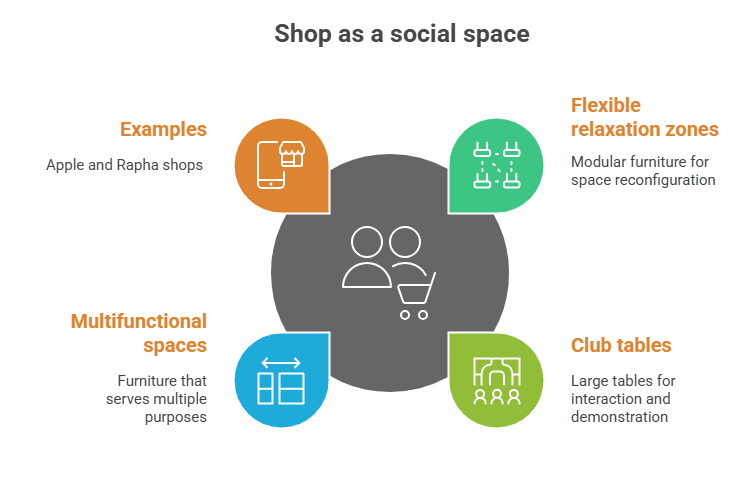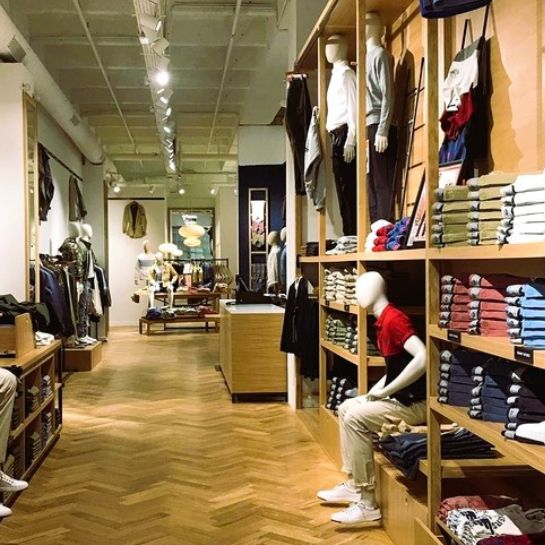22.05.2025
In the era of widespread online shopping, physical stores are undergoing transformation. One of the key directions is their evolution into social spaces where customers can meet and build relationships. This trend demands a completely new approach to the design of retail furniture and store fittings.
The rise of e-commerce has given modern consumers virtually unlimited access to products. As a result, they visit physical stores seeking something more – experiences and interactions that online shopping cannot provide. Retailers are responding to this need by transforming their stores into social hubs, where retail furniture and fittings play a key role in fostering connection.

Modern store design increasingly incorporates modular zones for rest and meetings, which can be easily reconfigured as needed. Lightweight, mobile furniture enables quick transformation of sales areas into spaces for workshops, presentations, or informal gatherings.
One of the pioneers in using retail spaces as social environments is Apple. Their “Today at Apple” initiative offers a series of in-store workshops and events designed to boost customers’ creativity and skills in areas such as photography, video, music, coding, art, and design.
To support these sessions, Apple stores have been equipped with new monitors, mobile screens, upgraded seating, and enhanced sound systems.
Large, communal tables are becoming central elements in various retail environments – from bookstores and electronics shops to fashion boutiques. These “community tables” serve as spaces for product demonstrations, workshops, or simply as places where customers can sit, talk, and spend time together. Often made from natural materials, they symbolize a return to fundamental human needs: conversation and shared experiences.
Cycling apparel brand Rapha has transformed its stores into community hubs for cyclists. Key elements of their store interiors include café-style tables, around which race screenings and informal meet-ups are held. The flexible layout also allows for technical workshops and speaker events.
Modern retail furniture must serve multiple functions simultaneously. Display shelves that convert into partition walls to create intimate event spaces after hours, cash counters that double as bars, or display stands that function as interactive screens—these are just a few examples of solutions that support the social dimension of retail.
Lululemon’s stores are equipped with modular furnishings that turn the space into a yoga studio after business hours. Notable features include adjustable displays that can be quickly moved to create open workout areas and mobile storage systems for mats and accessories.
Stores that successfully evolve into social spaces will earn customer loyalty on a level that e-commerce can’t reach. Investing in retail furniture and fixtures that promote human interaction is not a luxury – it’s a necessity for retailers looking to gain a competitive edge in the digital era. The store of the future isn’t just a place to shop – it’s a place where the product becomes a gateway to building relationships.

12.02.2026
Dockers is one of the global apparel brands that Ergo Store has supported for years, delivering brick-and-mortar retail spaces across various parts of Europe. What are the most distinctive features of the brand’s store concept, which until 2025 was part of Levi Strauss & Co.?